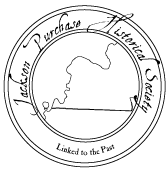 Mickey Stubblefield giving autographs October 19, 2009 after speaking to the October meeting of the Ellis Wilson Society.
Mickey Stubblefield giving autographs October 19, 2009 after speaking to the October meeting of the Ellis Wilson Society.
A native of Mayfield, Mr. Stubblefield played baseball for the Omaha Rockets (1947), the Kansas City Monarchs (1948-49), the Nebraska State League (1950), and the Pittsburg Pirates farm team called the Mayfield Clothiers (1952). A pitcher, he made history when he took the mound on June 26, 1952, in Mayfield’s War Memorial Stadium, to become the first African-American baseball player in the KY-IL-TN Class D Minor (Pro) League (commonly referred to as the Kitty League).
Mr. Stubblefield was born February 26, 1926 with the given name of Wilker Harrison Thelbert Stubblefield but somehow acquired the nickname of Mickey early in life. He tells that at about age 5 he could throw a ball over his home and run around and catch it before it hit the ground. His neighbors prophesied that he was going to be a ball player. In later years, it was said he could throw a baseball a city block!
Mickey started playing baseball after serving in the Navy and the statistics show that he was 5’9″, weighed 150 pounds and batted and threw right-handed. His career began with the Omaha Rockets in 1947, he went on to the Kansas City Monarchs where he earned $350 per month, plus $2 per day for food. He and his teammates traveled to and from ballparks on old buses sometimes sleeping and eating in them too. In these times before desegregation, many restaurants and hotels would not serve people of color. Mickey says it was different, though, in Nebraska and Canada. In Nebraska, “I didn’t know I was black until I looked in the mirror” says Mickey. Some fans, when they pulled into the ballpark would shout “We want Mickey”. Other towns were less friendly shouting abusive language at him and others he couldn’t go to at all.
Mickey lives currently in Mayfield, Kentucky and although his memory needs a “jump start” every once in awhile, he can still entertain folks with the story of his life as a baseball player.
If interested in finding out more about the Negro Leagues and the Kitty League, may we suggest the following: books: The Negro Leagues revisited: Conversations with 66 more heroes by Brent P. Kelley and The Negro Leagues, 1869-1960, by Leslie A. Heaphy; website www.kittyleague.com
